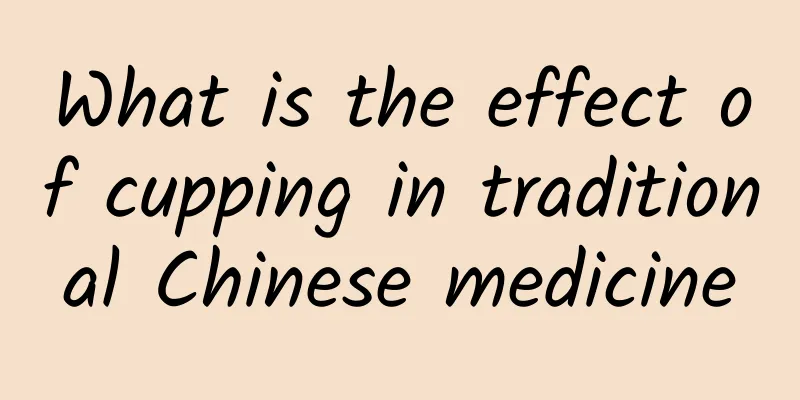What are the contraindications of taking Chinese medicine?

|
Nowadays, with the improvement of people's health concepts and awareness of health care, more and more people are beginning to abandon Western medicines that have quick effects but only treat the symptoms rather than the root cause, and turn to traditional Chinese medicine treatments that are slow to take effect and regulate the body from the root. Traditional Chinese medicine has a long tradition of "medicine and food have the same origin". Guided by the theory of traditional Chinese medicine and choosing the right diet therapy plan, one can achieve the goal of strengthening the body and regulating sub-health. So what are the contraindications of taking Chinese medicine for conditioning? Let me give you a detailed introduction below. Avoid cold food while taking Chinese medicine Being ill usually makes people feel exhausted, extremely tired and weak. Generally, Chinese medicine practitioners will prescribe some mild and mild tonic medicines to patients before and after treatment to help the body resist the invasion of the disease, or to speed up the body's recovery after the disease is cured. While taking Chinese medicine, you should avoid eating cold or cool food. This is because cold food can damage the spleen and stomach. If the spleen and stomach are damaged, digestion and absorption will be affected. Without a good supply of nutrition, recovery will be very poor. In addition, it should be noted that, regardless of whether you are healthy or not, frequent consumption of cold foods, such as cold drinks and food just taken out of the refrigerator, will lead to a decrease in the frequency of bioelectric firing of internal organs, vasoconstriction, and a decrease in blood supply. Therefore, it is best to eat less raw and cold foods. Greasy All kinds of greasy foods should also be avoided while taking Chinese medicine. Traditional Chinese medicine points out that greasy foods are sticky, and can also promote dampness and phlegm, and cause loose bowels and stagnant gas. After consumption, it will mix with the medicine and hinder the gastrointestinal absorption of the active ingredients of the medicine, thereby reducing the efficacy. Especially patients with weak spleen and stomach, indigestion, hypertension, coronary heart disease and other diseases should eat less of this kind of food in their daily life. These are foods that cannot be eaten while taking Chinese medicine, otherwise they are likely to reduce the medicinal properties and affect human health. In addition, it should be noted that you should avoid taking Western medicine while taking Chinese medicine to avoid conflicting properties. Fishy Generally, Chinese medicines have aromatic smells, especially aromatic dehumidifying and aromatic qi-regulating medicines, which contain a large amount of volatile oils to exert their therapeutic effects. These aromatic substances are most incompatible with fishy smells. If you do not avoid fishy smell when taking Chinese medicine, it will often affect the efficacy of the medicine. Such as the fishy smell of fish, shrimp, and seafood, and the mutton smell of cattle and mutton. Patients with allergic dermatitis such as allergic asthma, allergic rhinitis, boils, eczema, urticaria, etc. must avoid eating fishy foods while taking Chinese medicine. They should also eat less fishy, spicy and irritating foods such as chicken, lamb, pork head, crab, and goose meat. Because these foods contain foreign proteins, some patients are particularly sensitive and prone to allergies, which aggravates their condition. The above are the taboos regarding taking Chinese medicine for conditioning that I introduced to you. Traditional Chinese medicine conditioning can fundamentally treat many diseases and is a good choice for conditioning the body, especially for women. In addition, when taking Chinese medicine, it is forbidden to use boiling water to decoct the medicine; at the same time, you should not eat foods that are incompatible with the medicine. In addition, patients with each disease have different physical constitutions, different medicines, different foods to avoid, etc. Therefore, when seeing a doctor and getting medicine, you must carefully ask the doctor what you should avoid for your illness. Only in this way can you achieve the best treatment effect. |
<<: What are the taboos when taking Chinese patent medicine?
>>: What are the contraindications of taking blood-enriching Chinese medicine?
Recommend
Be sure to pay attention! The more you tolerate hemorrhoids, the greater the harm!
Everyone knows that hemorrhoid surgery will cause...
Who can't eat mistletoe?
Analyze the common Chinese medicine compatibility...
How to treat chronic pharyngitis? What are the treatments for chronic pharyngitis?
Chronic pharyngitis is a common disease, which is...
What should I do if my canine teeth fall out?
Many people in real life have canine teeth, and p...
How to treat tongue pain
In our daily life, if we get angry or accidentall...
The medicinal value of the core-picking wood should not be underestimated
Walnut core wood refers to the middle layer insid...
Effects of modified Wutou decoction
Rheumatic diseases have always been a serious typ...
Excessive masturbation will affect fertility
Masturbation, also known as self-pleasure, refers...
Are varicose veins on the temples serious?
Varicose veins in the temples are also quite comm...
How to stop coughing immediately when your throat is itchy
Colds are most likely to occur in seasons with su...
Many scars on feet
No matter where the scar is on the body, everyone...
Right inner thigh pain
Pain in the inner side of the right thigh root is...
Traditional Chinese medicine treats varicocele, and the effect of traditional Chinese medicine treatment is good
Varicocele usually occurs on the left side, and t...
What is the difference between lice eggs and dandruff
Internet celebrity words, nothing in life can esc...
Pregnant women eating leftovers is bad for the fetus
During pregnancy, the mother's nutrition is v...









